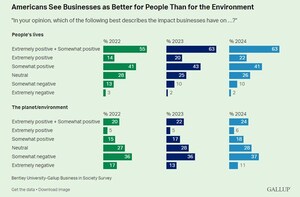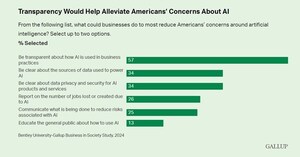WALTHAM, Mass., Nov. 29, 2016 /PRNewswire-USNewswire/ -- Scientists affiliated with the Marine Algal Industrialization Consortium have published a research article demonstrating the potential of using microalgae (algae) to significantly mitigate greenhouse gas emissions if used as a source of food. Leading the study was Michael J. Walsh, a research fellow in Bentley University's Center for Integration of Science and Industry who holds a doctorate in biological and environmental engineering. The study's findings highlighted that algal food and fuel coproduction can mitigate greenhouse gas emissions while improving land and water-use efficiency.
The study investigates the use of algal biomass for the production of food or energy products. Algal food products have long been present in aquaculture and alternative human diets. Recent products such as Soylent protein shake and Thrive culinary oil have brought algal food to the mainstream. However, compared to conventional agricultural crops, algal biomass can be cultivated on non-arable lands, at higher yields and using seawater. The paper shows that the substitution of conventional crops with algae can significantly reduce the impact of current agricultural practices through:
- Avoiding deforestation and promoting afforestation
- Enabling emissions reductions from some of the hardest to mitigate emissions sources (deforestation and agriculture)
- Saving significant amounts of freshwater water by displacing water-hungry crops
- Enhancing food security by decoupling food production from at-risk agricultural regions
Using algae for energy can still reduce emissions but does not yield the benefits associated with offsetting conventional agriculture. "Thinking about algae as a food product opens new paths for achieving a number of sustainable development goals that are out of reach for algal biofuels," says Walsh, the lead author on the paper.
The study also examines some of the negative tradeoffs of an algal food economy. For example, algae require large, unsustainable inputs of chemical fertilizer. However, this demand may create markets for novel technologies such as carbon capture and storage and nutrient recapture from waste water.
Walsh notes that if researchers can overcome these challenges we may see broader benefits. "Algae food holds the potential to open up a significant amount of land to other uses. With the benefit of available land, we can implement more emission reduction technologies such as bioenergy carbon capture and storage (BECCS)," he says. This matters because according to the 5th Assessment Report of the Intergovernmental Panel on Climate Change, if our ability to mitigate emissions through BECCS technology is limited, it's likely many climate change models will not be able to limit warming to below 2 degrees Celsius (the known target for globally impactful temperature reduction).
Walsh, will be presenting on this research at the 9th Annual Meeting of the Integrated Assessment Modeling Consortium in Beijing on December 5th 2016. This work builds on and is supported by the Marine Algal Industrialization Consortium, a group that has received over $20M in DOE & USDA funding and has conducted numerous algal cultivation experiments and animal feed trials. The Consortium has recently published a Commentary in Oceanography summarizing its research for a more general audience titled Marine Microalgae: Climate, Energy, and Food Security from the Sea and a blog post summarizing this study.
BENTLEY UNIVERSITY is one of the nation's leading business schools, dedicated to preparing a new kind of business leader – one with the deep technical skills, broad global perspective, and high ethical standards required to make a difference in an ever-changing world. Our rich, diverse arts and sciences program, combined with an advanced business curriculum, prepares informed professionals who make an impact in their chosen fields. Located on a classic New England campus minutes from Boston, Bentley is a dynamic community of leaders, scholars and creative thinkers. The Graduate School emphasizes the impact of technology on business practice, in offerings that include MBA and Master of Science programs, PhD programs in accountancy and in business, and customized executive education programs. The university enrolls approximately 4,100 full-time undergraduate, 140 adult part-time undergraduate, 1,430 graduate, and 43 doctoral students. Bentley is accredited by the New England Association of Schools and Colleges; AACSB International – The Association to Advance Collegiate Schools of Business; and the European Quality Improvement System, which benchmarks quality in management and business education. For more information, please visit www.bentley.edu.
Photo - http://photos.prnewswire.com/prnh/20161129/443753-INFO
Logo - http://photos.prnewswire.com/prnh/20130219/DC61345LOGO
SOURCE Bentley University
Related Links
WANT YOUR COMPANY'S NEWS FEATURED ON PRNEWSWIRE.COM?
Newsrooms &
Influencers
Digital Media
Outlets
Journalists
Opted In






Share this article